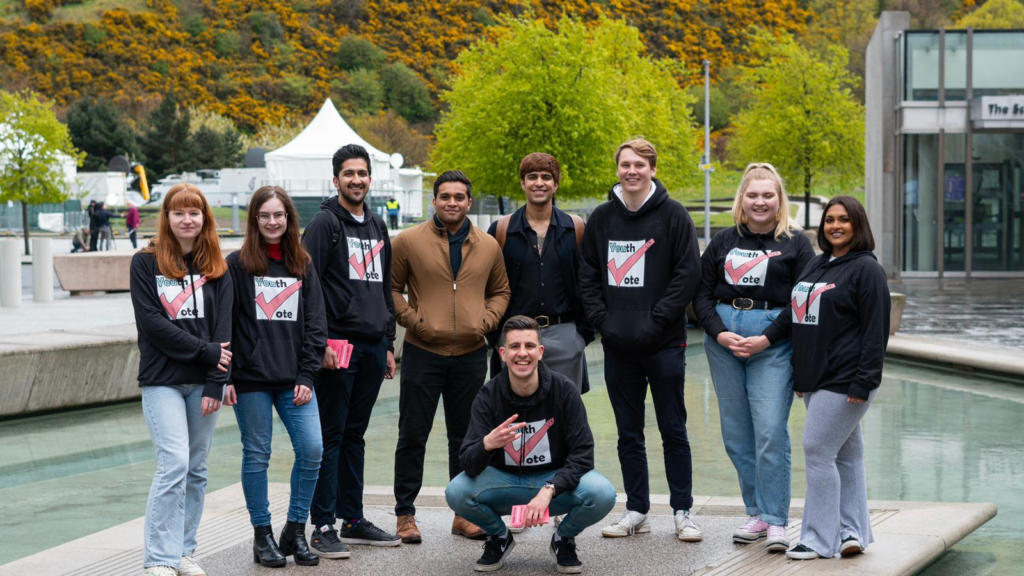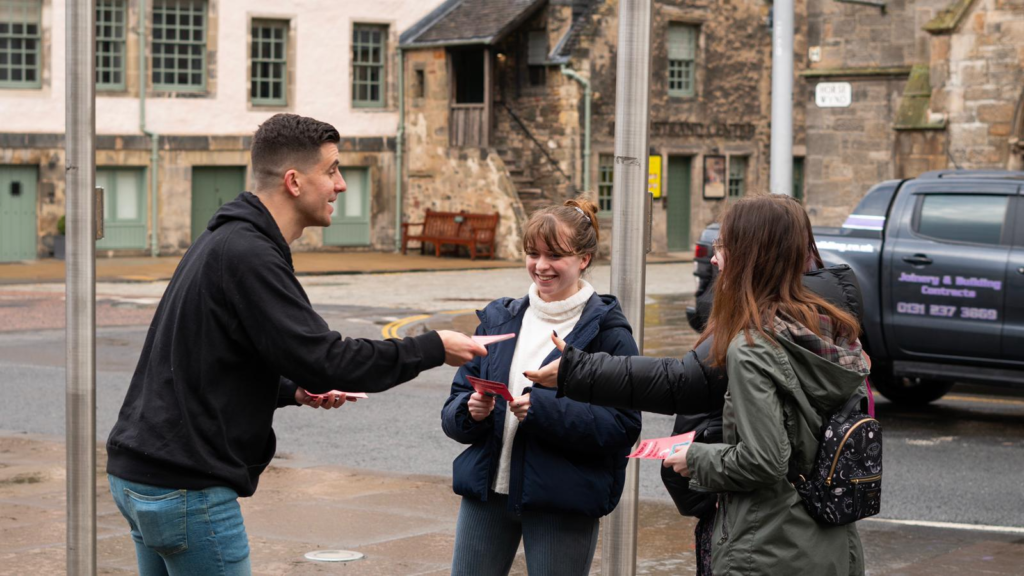by Politics and International Relations student Alette Moller
*The views in the following article are the personal views of the author and are not an official position of the School.*
We don’t need to look far to see that youth voices in the political process need strengthening. In the 2016 EU referendum, a ‘majority of 18-34 year olds’ voted to remain, while a ‘majority of those ages 55+’ voted to leave. Young people turned out in the lowest numbers, something not uncommon in the UK, and the verdict to leave the EU will have significant consequences for the future. We need a louder collective voice in decisions that affect us.
I joined The Youth Vote UK with the conviction that we, young people, are the future of politics, and our involvement in the political process is key to democracy. The Youth Vote UK, as an organisation committed to empowering the voices of young people, believes that the first step to getting young people more involved in politics is ‘getting them into polling stations’.

Background
The Youth Vote UK was originally founded in 2017 by Alex Cairns, and was rebooted in 2020. Recognising that 18-24 year olds typically turnout to vote in lower numbers than those in higher age categories, the organisation aims to encourage greater youth involvement in the democratic process. Their approach involves organising campaigns and events prior to local and regional elections, as well as posting blogs on election candidates and outcomes. The blog also includes opinion pieces, such as on the health of our democracy and the future of financial services.
Leadership and structure
The CEO and founder of the organisation is Alex Cairns, and the core team is comprised of 10 people, including the Deputy CEO Fareez Faiz as well as Heads of Functions and Associates. There are 26 Campus Ambassadors connecting the organisation to universities across the UK. I joined The Youth Vote UK as a Campus Ambassador for the University of Sussex. As part of the Policy and News Analysis team, I have been able to write about issues that I care about, such as the influence of fake news on democracy and have also written about election candidates and political parties hoping to help inform young people.

Influence
The Youth Vote UK has been able to connect with political figures such as Members of Parliament to get the voices of young people heard. For example, in April of 2021 The Youth Vote UK organised a ‘Question Time’, which allowed young people to raise questions and issues important to them with MPs and MSPs, as well as with academics. For example, matters relevant to tuition fees and future employment prospects of under-25s were discussed in the session. The organisation is active on Facebook, Twitter, Instagram and TikTok, and has over 1,800 followers across its social media platforms. Their goal is to advertise their voluntary projects and inspire greater engagement in the political process.
As Marian Wright Edelman said, ‘Democracy is not a spectator sport’. So, the more politically active young people are, the bigger of a difference we can make.
Keeping up with the political scene
Keeping informed on political matters means that we can participate effectively, from signing petitions to voting in elections. There are many ways to accomplish this, however, it is good to know what to avoid and what to look for. According to research done in 2020, over a third of Americans use Facebook as a ‘regular source of news’. Yet, Facebook uses your ‘profile and previous behaviours’ to personalise your feed. This means that the platform is unlikely to deliver content that is balanced, or challenges your views. Therefore, social media can be a starting point for finding political information, but using it as a sole source should be avoided. Instead, reading across a range of news outlets allows you to access a wider variety of information. News apps such as BBC News and the Guardian send notifications to your phone, so you can compare headlines and keep up to date. Additionally, politically neutral blogs such as those posted by The Youth Vote UK provide summaries of manifestos in the run up to local and national elections. Yuval Noah Harari asserts that ‘clarity is power’. Remaining accurately informed brings us closer to democracy.
You can follow The Youth Vote UK on Instagram, Twitter, Facebook or TikTok to get information on election candidates, results and more. You can find out more about The Youth Vote UK by visiting https://www.theyouthvoteuk.com.


Leave a Reply